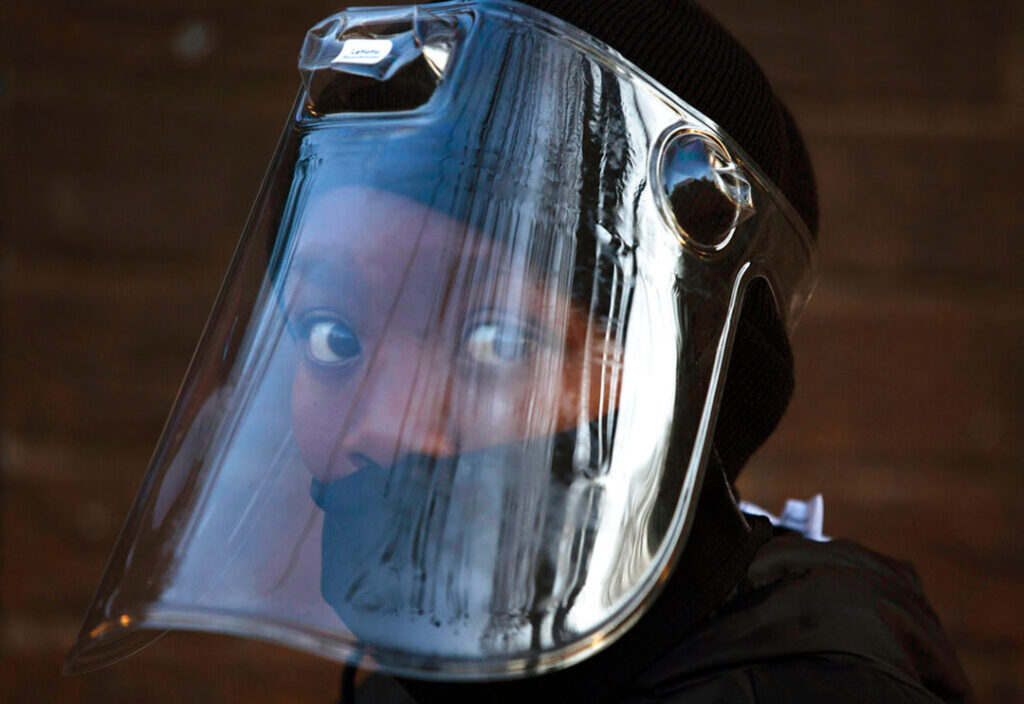ADF STAFF
Namibian health care workers received added protection against COVID-19 when the U.S. delivered 11,000 face shields and 3,000 nasal testing swabs to the country’s Ministry of Health and the Namibia Institute of Pathology. The swab pack includes a sample collection system that is in high demand among medical facilities around the globe.
The supplies are part of a nearly $6.1 million U.S. donation to prevent the pandemic’s spread. COVID-19 has killed more than 130 Namibians, according to the Africa Centres for Disease Control and Prevention.
“Health care workers are on the front line in our fight against COVID-19 and can be at increased risk of infection compared to the general public,” U.S. Ambassador Lisa Johnson said. “The U.S. Embassy is pleased to provide face shields to improve the personal protection of health care workers against infection from the virus. This is one of the ways that we are thanking and valuing the health care workers of Namibia.
“The virus is still present in Namibia, and targeted testing is critical to ensure that the virus is not spreading to vulnerable people in the community.”
Workers conduct automated and semi-automated coronavirus tests at the institute’s government laboratories, the University of Namibia and two private health care companies, said Anita Beukes, a laboratory supervisor on a COVID-19 testing team at the Namibia Institute of Pathology.
“The testing process can take several hours, depending on the method used, before results become available. The results are then verified, entered into the laboratory information system and finally signed off as ready for issuing through the Ministry of Health response team to the clients,” Beukes told the U.S. Centers for Disease Control and Prevention. “All these processes have built-in quality indicators to ensure timely and correct results are issued to clients.”.
Two days after the U.S. delivery, Namibian President Hage Geingob said 12 of the country’s 14 counties reported a reduction in COVID-19 cases over four weeks in September and October. In a national address, he said the country conducts eight COVID-19 tests for every 1,000 people.
“While new infections, new cases and hospitalization rates have declined significantly, both in Windhoek and Walvis Bay, which were at different times regarded as epicenters of the pandemic in the country, we continue to record a rise in cases in the Ohangwena, Oshana and Oshikoto regions,” Geingob said.
Infections rose among people who gathered “in crowded spaces and closed settings such as school hostels, corrections facilities and police holding cells,” he added.
Geingob said reduced travel restrictions through the end of November allow all travelers entering the country to proceed to their destinations if they produce negative COVID-19 test no more than 72 hours old. Travelers with a negative result older than 72 hours — but no more than a week old — can enter the country but will be quarantined for seven days.

